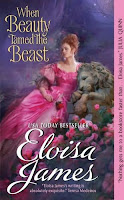The tailored queries received an amazing 42.4 success rate--that said, these were, of course, January queriers--to the average will be lower than that (my guess would be around 30 percent).
The "normal" query--the "Dear Ms. _______" and then continuing on with a copy-pasted query--had a 10.5 percent success rate.
And those who made mistakes--who got my name wrong, etc--had a zero percent request rate (and not just because I found the errors somewhat annoying). Those who don't do enough research to spell an agent's name correctly are often the same writers who don't bother to learn what we're interested in--or how best to present their work.
Now, what am I considering tailored?
I don't mean, Dear Agent, I hear you like YA, and this is YA, so you'll love this, right?
Here are some of my favorites from January:
I would love to work with someone else who remembers Surge fondly. When I read your latest blog post and found an interview stating your interest in YA fiction with crossover appeal, I knew I had to query you.
and
and
and
Now. What do these lines do for these writers?
- They prove that the writer has done his/her research--thus preventing them from ending up with the 33 percent who did not.
- If you read the agent's blog, mention it--this is a great way to connect.
- With these lines, I get an immediate sense of the writer's voice. As you can imagine, I reject a lot of queries and manuscripts because the voice is off--especially for YA. This proves right away that you're less likely to fall into that camp.
- If these manuscripts are as amusing as their pitches, I'll be giggling for hours.
- Keep in mind that I request a lot of queries simply because I want to read them. Your query functions, in this way, like book jacket copy.




